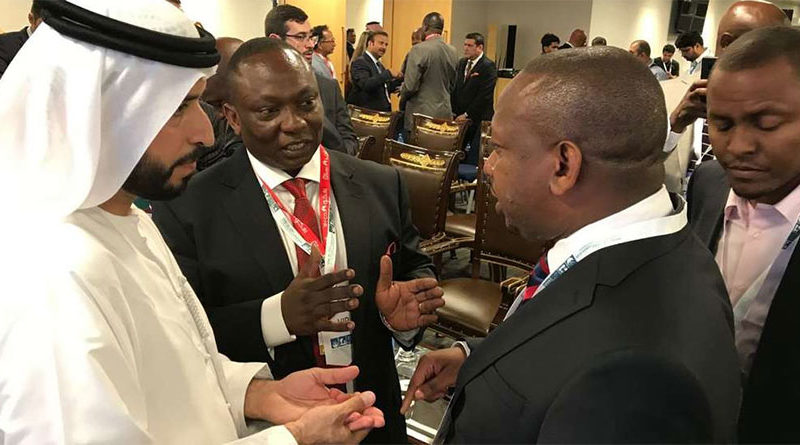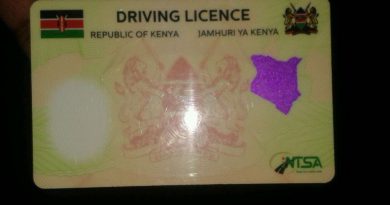Kenyan business people reach out to the Emirates
The Kenyan business community has engaged the Emirates in talks geared towards facilitating local entrepreneurs in agribusiness to access global markets.
This comes even as a large number Kenyans stare at starvation blamed on heavy reliance on rain-fed agriculture, pests, diseases and poor farming practices among a litany of woes facing the sector.
But the Kenya National Chamber of Commerce and Industry (KNCCI) has said there is need to help Kenyan entrepreneurs market their products across the world as one way of enhancing incomes.
At a meeting in UAE last week, the chamber noted that Kenya can borrow a leaf from the gulf country on boosting food security in line with the government’s four key development pillars.
The other three entail boosting manufacturing through value addition of local products, provision of universal healthcare and affordable housing.
“We have had discussions around food security and they (UAE) have agreed to provide opportunities for Kenyan business people in the agribusiness sector to access markets across the world,” said KNCCI chairman Kiprono Kittony.
The talks were held on the sidelines of the Gulfood 2018 mega show and the UAE-Russia-Africa forum at the Dubai World Trade Centre between February 18 and 22.
Mr Kittony said the Kenyan delegation to the event also lobbied the UAE government to extend long-term visas to Kenyan businessmen to enable them to effectively market their products in the oil rich country.
“Currently, Kenyan business people are only given short-term visas to Dubai. We have engaged the UAE government to look into this and accord our business people long-term visas of at least one year so that we have ample time to market our products,” he said.
The talks also dwelt on ways through which Kenyan entrepreneurs could form networks with their counterparts in Dubai and Russia, according to the chairman of KNCCI Nairobi chapter Richard Ngatia who was in the delegation.
“Our aim is to ensure that the business communities in the two countries use Kenya as a business hub in the region,” said Mr Ngatia. “We want to see how the UAE government can support us in terms of resources to put up facilities for food storage and waste management in our cities.”
Mr Ngatia said they learnt lessons from the UAE, a desert country, which has been able to achieve food security in very harsh conditions.
Nairobi Governor Mike Sonko, who led the Kenyan delegation, emphasised the importance of enhancing food security in the country.
“Kenyan farmers rely heavily on unpredictable rain to grow crops. Rains which at times fail or are poor,” he said.
In tackling food insecurity among the urban population, Mr Sonko cited the various interventions the Nairobi County government had put in place, among them the development of the Nairobi City Agribusiness Strategy and the Urban Agriculture Promotion and Regulation Act, 2015.
He, however, said Nairobi was still experiencing post-harvest losses due to poor storage, below par transportation system and high unemployment levels especially among the youth.
However, these challenges had created investment opportunities in areas such as improved technologies in post-harvest management; increased food production using new technologies and improved food distribution methods.
During the talks, UAE expressed interest in working with the Kenyan private sector and more specifically addressing the challenges facing the small and medium enterprises by increasing international trade and opening up of new markets for Kenyan products.
The Nairobi County Executive for Agriculture Danvas Makori used the forum to seek partnerships and investment opportunities in Dubai in the areas of livestock management, Halal production, waste management and the dry port management.
Also in the 37 member delegation was the KNCCI national vice chairman James Mureu and the chamber’s Nairobi chapter chief executive Nemaisa Kiereini.
The KNCCI Nairobi chapter is also engaging the Nairobi County to explore ways through which the business community can contribute to the Nairobi County Integrated Development Plan CIDP 2018-2022.
KNCCI underscored its commitment to partnering with the government towards boosting food security in the country. The government targets to produce 2.8 million bags of maize, potato, rice and feeds in 52,000 acres by the end of this year.




